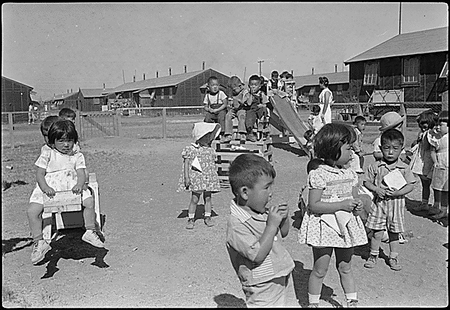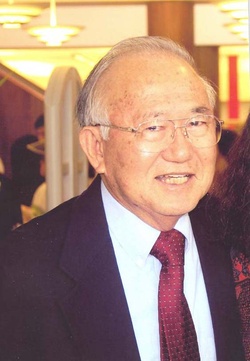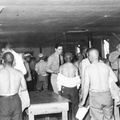My name is Yukio Kawaratani, a Tule Lake victim at 14 years of age. Our family of 11 members suffered lifetime consequences. Three brothers were drafted into the U.S Army, and two more were eligible. Rumors said that they would be sent to the front lines and be considered expendable. My parents could not accept putting five sons in harms way, so they answered No, No, to keep the remaining family together and to jointly suffer the consequences.
We “No, No” internees sent to Tule Lake were victims of many different reasons, opinions, circumstances and misinformation that had nothing to do with loyalty. But for years we have been labeled as the “trouble makers” because we didn’t comply for the better face of the community like most of the others did. Among Nisei, the standard question was, “What camp were you in?” I never hesitated to say Poston and Tule Lake, but I was always angered by those who acted surprised or reacted to the fact that I was a “No, No.”
With the aging of the Nisei, the “What camp were you in” question became infrequent. But a year ago in January, the Pasadena City Council asked for public input regarding declaring a City Fred Korematsu Day. As the lone internee speaking, I gave an impassioned statement. A non-Japanese I sat next to said, “Good job.” But a Japanese American friend sitting in front of us turned around and said “Yeah, but he’s a No, No.” Later, I angrily wondered why this friend had denigrated me. After nearly 70 years, I wondered, do others in the JA community still feel that way about our decision?
Under Redress in 1988, Congress and President Reagan apologized for a grievous wrong and gave reparations to each internee, including those who were in Tule Lake. In 1998, President Clinton awarded Fred Kurematsu a Presidential Medal of Freedom, the country’s highest civilian honor, for his protest against the internment. And this year, President Obama awarded the late Gordon Hirabayashi a Presidential Medal of Freedom for his protest. Also, in 2002, the National JACL Board finally issued a public apology to the Heart Mountain draft resisters for not recognizing their wartime stand of protest.
And yet, no one has accepted the actions and protests of 18,000 Tule Lake internees. Tule Lake was a virtual high security prison. Inmates at Tule Lake suffered by far the most adverse consequences during and long after World War II. Even we, who were minors and had no part in the decision to answer No, No, have been stigmatized to this day.

Tule Lake Segregation Center, Newell, California. A kindergarten class at the Tule Lake Center on the playground (National Archives photo no. 210-G-G776)
After nearly 70 years, I believe that there must be better understanding, improved feelings and healing in the community. Tule Lake must be historically preserved by the National Park Service. Its internees should be recognized in order to remind the people of the United States of the terrible costs that resulted from Executive Order 9066, and to finally honor those, who took a stand against injustice.
I also request that in all fairness, the JACL should open discussion toward a process of apologizing to and accepting the protest decisions and actions of the victims of wartime circumstances; we, who were at Tule Lake.
* Yukio Kawaratani’s speech at the Tule Lake National Park Service meeting held on August 2, 2012.
© 2012 Yukio Kawaratani




